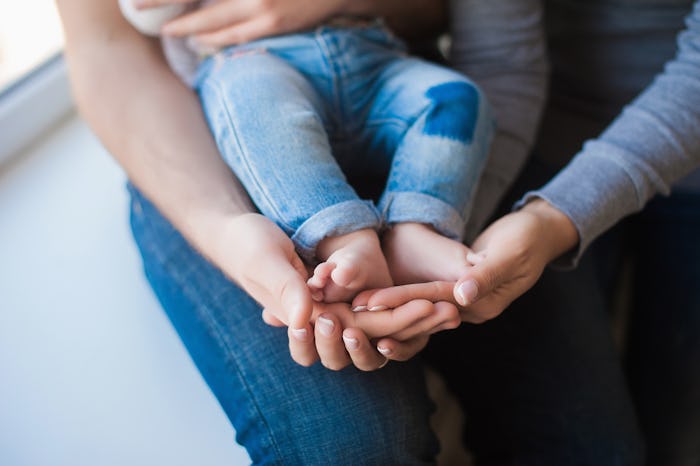In today's world, it's nearly impossible not to introduce our children to all the techy, gadgety things while also promoting inclusivity, open-mindedness, and compassion among a wide range of prominent topics. Politics, religion, and the inner workings of a person's fundamental beliefs are all on the table. From what I see plastered in various places, the common opinion of moms today leans on false perceptions of apparent "entitlement." I disagree. I actually think millennial moms are raising more socially aware kids than previous generations. We're raising smarter, happier kids than ever before and I think a lot of it has to do with the way we implement social awareness throughout their everyday lives.
My two children, while five years a part in age, are both acutely aware of how times are different from they way I grew up (because I tell them so often, for one). My parents, who did the best they knew how at the time, didn't work to instill the very things I'm working so hard to with my kids. It's not that they were cruel or unfeeling, but didn't necessarily have the tools or knowhow to speak on the topics we've come to hear about (and on a daily basis).
My babies live in an internet-obsessed world, they know the dangers of being online, where the games are, and, above all else, they're able to read and follow the journeys of those living different lives they otherwise might not have knowledge of — like children across the ocean in war-torn territories who are fighting for their lives. It's a huge game changer because my kids are connected to others in ways I wasn't able to be when I was their age.
Because of all this, not only are they able to recognize the (sometimes drastic) juxtaposition between their lives and other people's, but it also helps strengthen their compassion and empathy muscles. On that note, here's just some of the ways us millennial moms are raising more socially aware kids (and killing it, by the damn way).
They Use The World To Teach Empathy
Children are naturally curious about other people and, honestly, it's one of their coolest traits. However, it's important to use our surroundings as teachable moments whenever possible.
If my children see someone they perceive to be "different" than them, by color or disability or whatever, we can use that as another way to instill compassion and empathy. Being connected to the outside world can mean a lot of different things. For me, it's about giving my children the tools to be the best humans they can be, making the best choices possible, and treating everyone with the respect and kindness they deserve.
They Get Involved
Things are happening all around the globe so when something really hits home or is bothering one of my kids, we discuss and we come up with ways we can help. Sometimes it's a matter of physically using our time, while others, we might donate money or look for different ways to contribute. In making current events something we speak about regularly, my kids are more likely to want to help those in need — even before I know about it.
Just before Christmas, my daughter asked to buy a present for a friend who's home-life situation was dire. I was humbled and grateful that, through all the lesson's I'm trying to teach, she's actually listening and learning, hoping to make the world a better place.
They Encourage Diversity And Inclusivity
Along with teachable moments, it's important my kids enjoy a wide range of books, movies, and toys that represent many cultures — not just their own. I hope they come away with these tools with a new perspective and that they know the world isn't only about them. There are lots of ways people can be, and live.
They Open The Dialogue
With the rise of political discussion (especially as of late), my daughter has come home from school many times with questions or concerns. Millennial moms know the importance of keeping these topics open and fluid. I don't back away from anything they want to know more about because that, to me, might make them question if their voice is truly being heard. By showing them through the action of listening, they'll be more likely to do the same with others (and just like my daughter did at Christmas with her friend in need).
They Educate On Privilege
I've always had skin dark enough for others to question my identity and especially since my brother, who had a different father, came out blonde-haired, blue-eyed. We're polar opposites in every way possible. My kids have (thankfully) never known some of the issues I struggled with as a child but, when I look at them, I can't help but be reminded of the differences in attitude between my brother and I.
This is why it's really important we continually engage in discussions about privilege, what it affords them (whether intended or not), and how others may be treated unfairly because of it. They may not completely understand all of this just yet but, hopefully, they'll grow up with a deeper empathy for others alike, and unlike, them.
Raising kids that are socially aware is really important to me as a millennial mom. No matter what the issue, I hope my kids walk away with a deeper understanding of the world around them with more compassion and empathy for others.
